Vocabulary
BEACH
DAY
GIRL BOY
ORANGE JUICE
TREASURE
A day at the beach
Woman: It’s very nice here.
Man: Yes, the weather is wonderful.
I’m thirsty!
Woman: Well, it is hot today.
Man: I am very lucky!
A blue sea, white sand, and a beautiful girl.
Woman: And a very cold orange juice.
Man: Oh, darling. You are a treasure.
Woman: Yes, I know. Here you are.Vocabulary

WAITER
BEARD

SUIT AND TIE
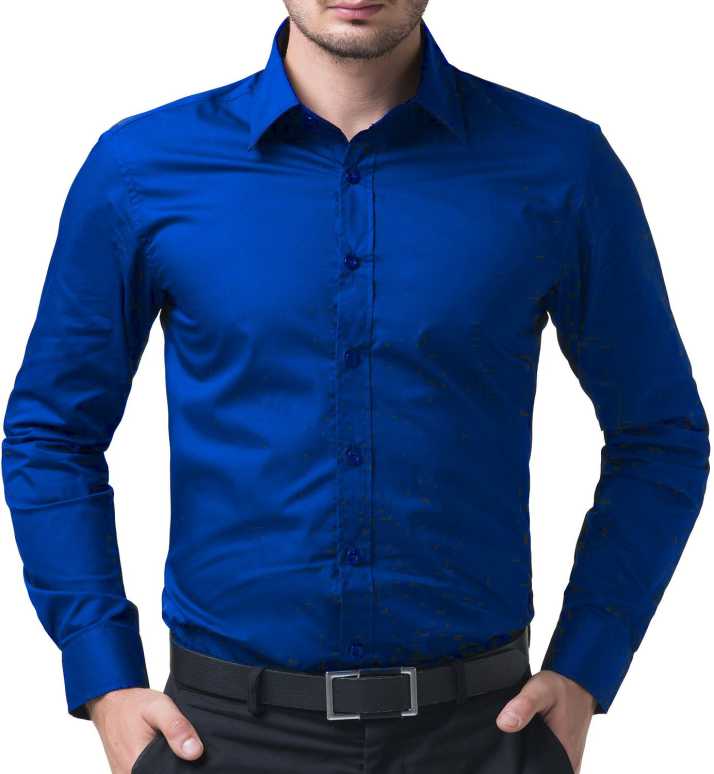
SHIRT
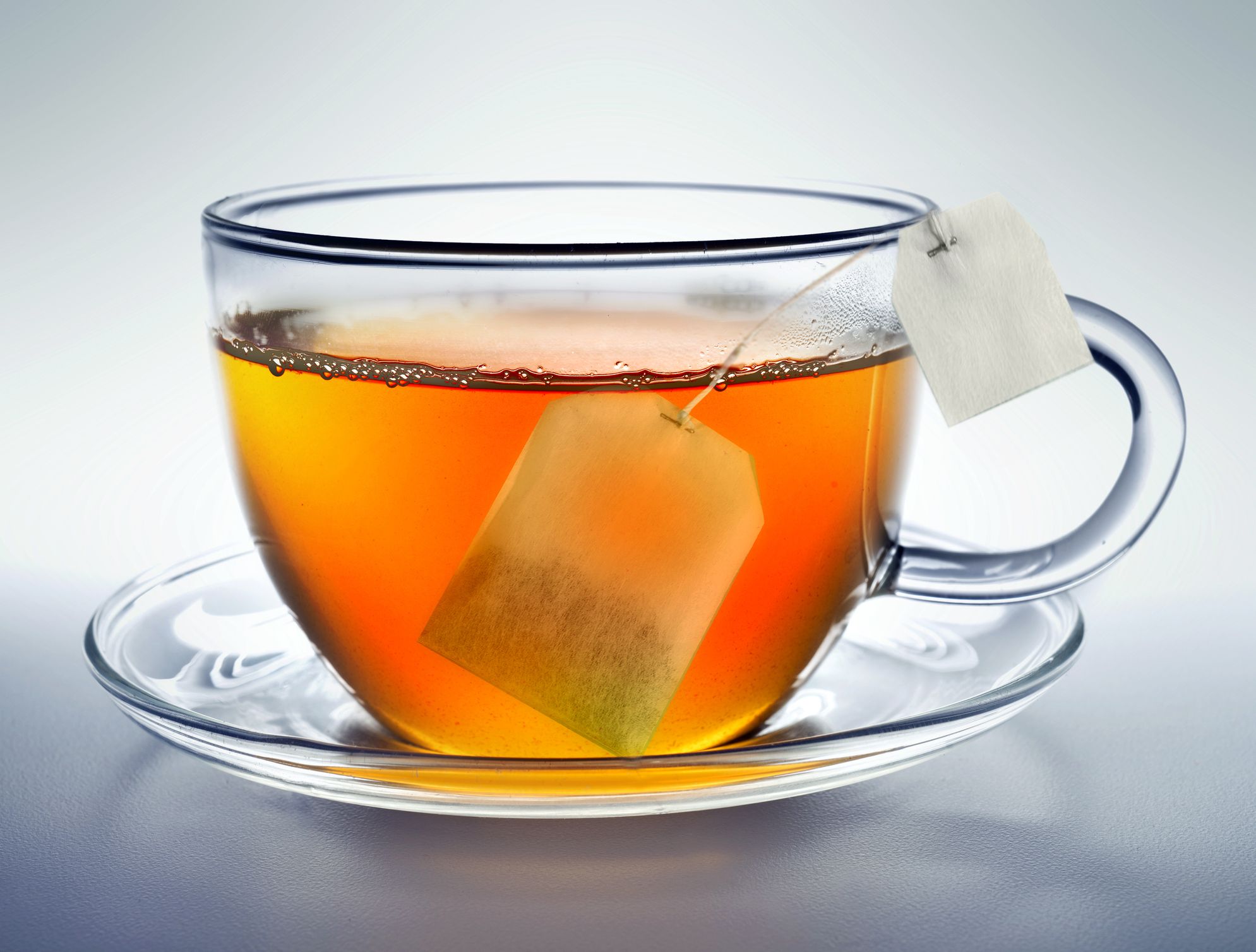
TEA
MILK
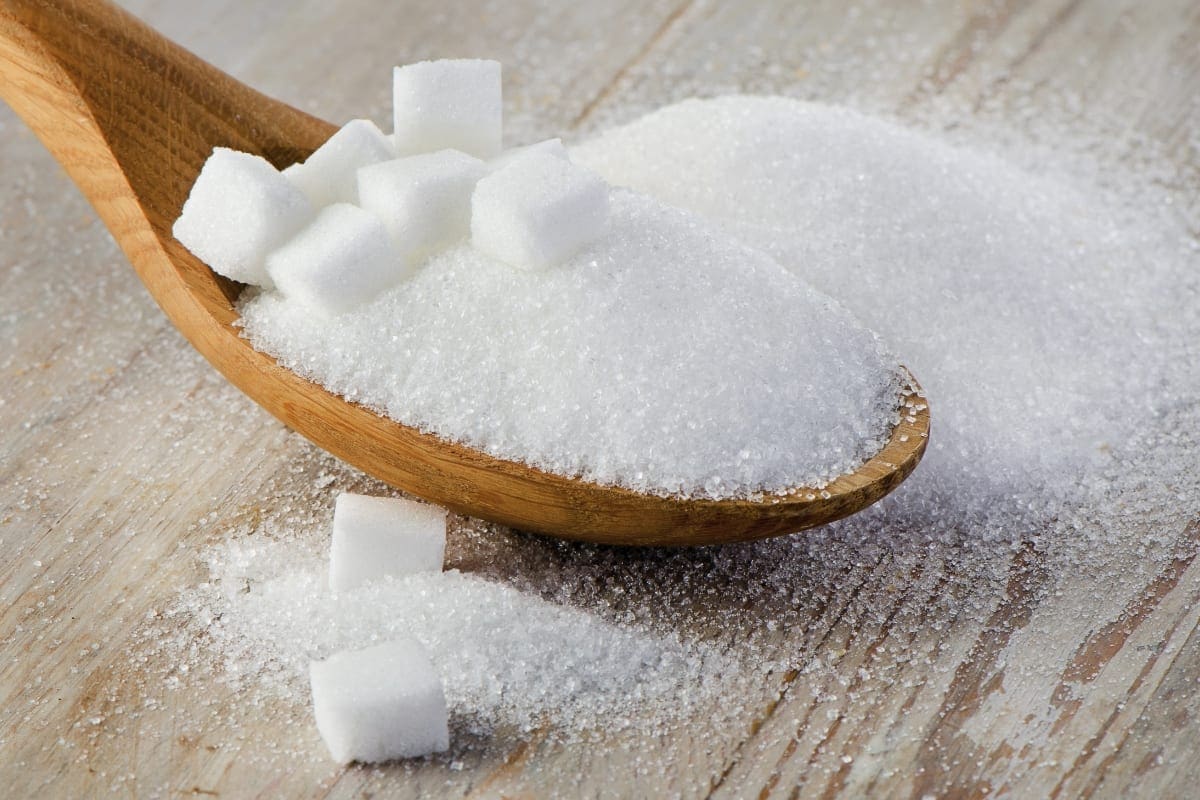
SUGAR
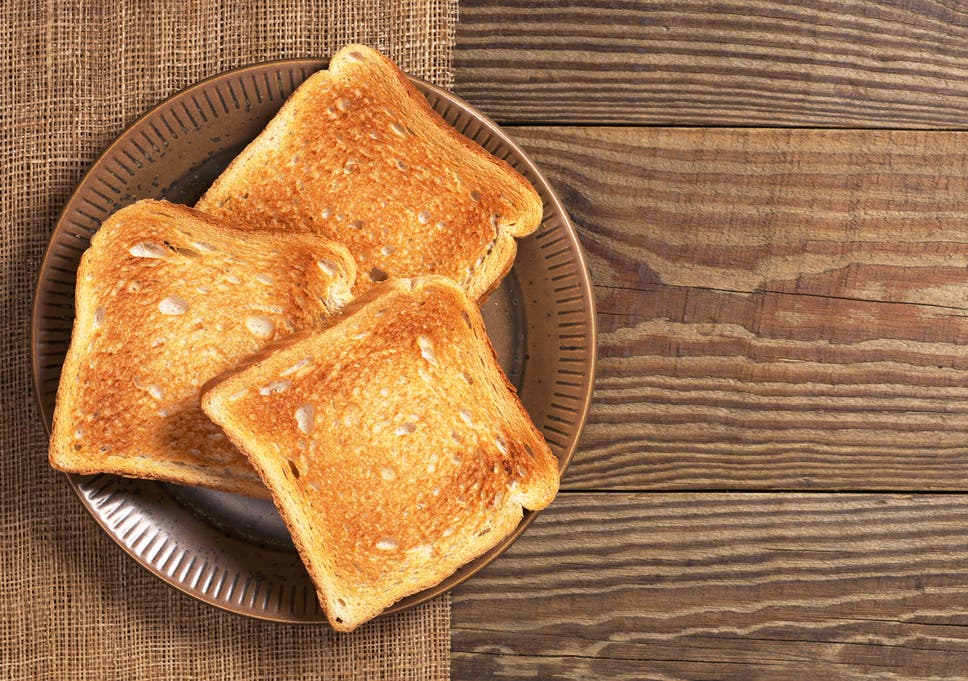
TOAST

BUTTER

HONEY
BOWL OF CEREAL AND SPOON
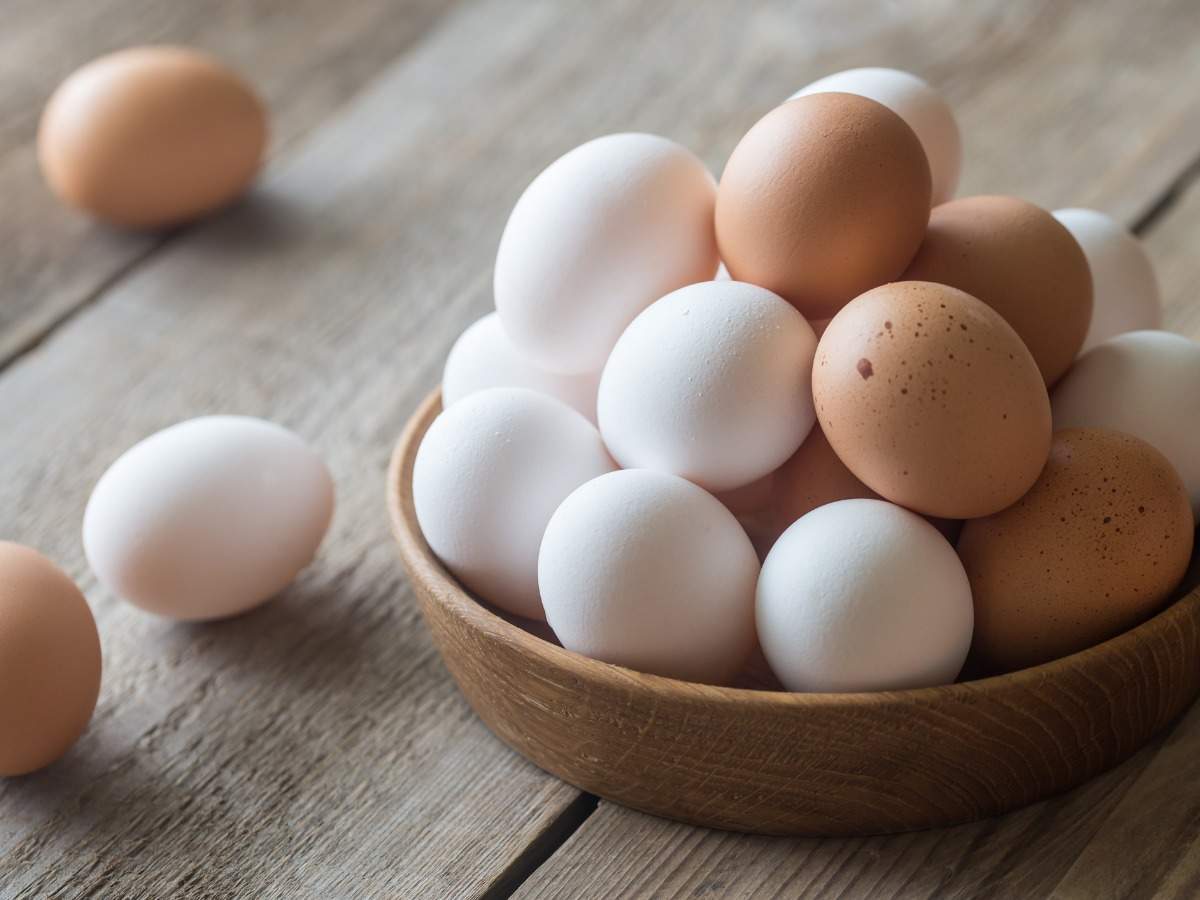
EGGS

FRIED EGG
SCRAMBLED EGGS
BACON
At Breakfast
W - Waiter
C - Customer
W: Some tea?
C: Ah, yes, please.
W: With milk?
C: No, thank you. Where's the sugar?
W: Here you are. Some toast?
C: Yes, please. With butter and honey.
W: A bowl of cereal?
C: Yes, please. With cold milk.
W: Fried eggs and bacon?
C: Hmm, no, scrambled eggs, please.
W: One minute, sir. Here you are: toast, cereal, cold milk, and scrambles eggs.
C: Thank you very much. You are really efficient.
W: Thank you, sir.
C: You're welcome.
Grammar
Definite article - THE
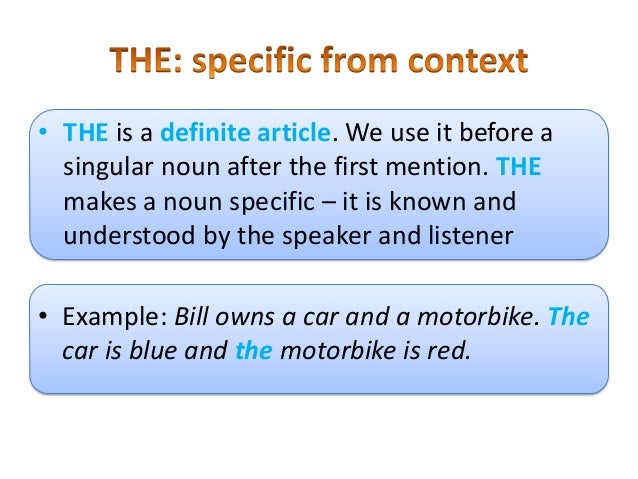
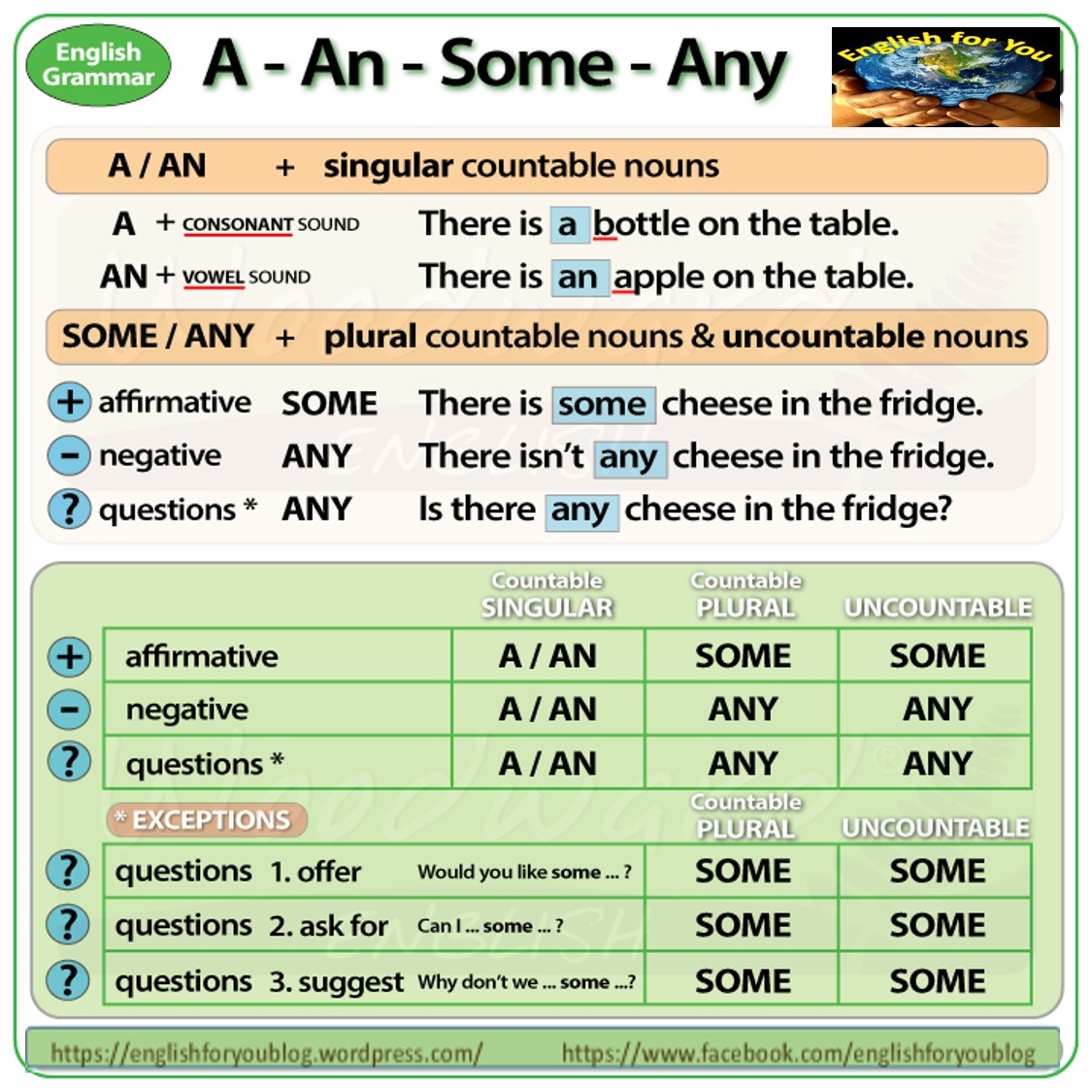
Using THERE IS and THERE ARE
We use there is and there are to say that something exists.
We use there is for singular and there are for plural.
Affirmative Sentences:
There is a pen on the table. / There’s a pen on the table.
There are three pens on the table.
Negative Sentences:
There is not a pen on the table. / There’s not a pen on the table. / There isn’t a pen on the table.
There are not three pens on the table. / There aren’t three pens on the table.
Questions:
Is there a pen on the table?
Are there three pens on the table?
How many pens are there on the table?
Countable and uncountable nouns
Countable is something we can count: pen, pencil, book, dog, people etc.
When used in the singular form, we use the indefinite articles a/an (A before consonant sounds and An before vowel sounds).
Example: There is a dog in my house. / There is an English book on the table.
When used in the plural form, we use some, any and no.
Example: There are some dogs in the house. / There are some English books on the table.
Uncountable is something we cannot count: sugar, milk, tea, honey etc. It is always used with some, any and no and it’s always in the singular form.
Example: There is some milk in the fridge.
The use of SOME, ANY and NO
We use some and any when we can’t or don’t want to specify a specific number or exact amount. They can be used with countable and uncountable nouns.
Some is used in affirmative sentences and in questions:
Affirmative: There are some kids in this room. / There is some tea in my cup.
Question: Are the some kids in this room? / Is there some sugar?
Any is used in questions and negative sentences (when the verb is in the negative form:
Question: Are there any kids in your family? / Is there any sugar?
Negative: There aren’t any kids in my family. / There isn’t any sugar.
No is used in negative sentences when the verb is in the affirmative form:
There are no kids in my family.
There is no sugar in the fridge.
So, in the negative form, we can say “There aren’t any books in my bag.” Or “There are no books in my bag.”
“There isn’t any milk in the fridge.” Or “There is no milk in the fridge.”
Any can also be used in affirmative forms meaning anything without distinction.
You can use any English book you want to study.









